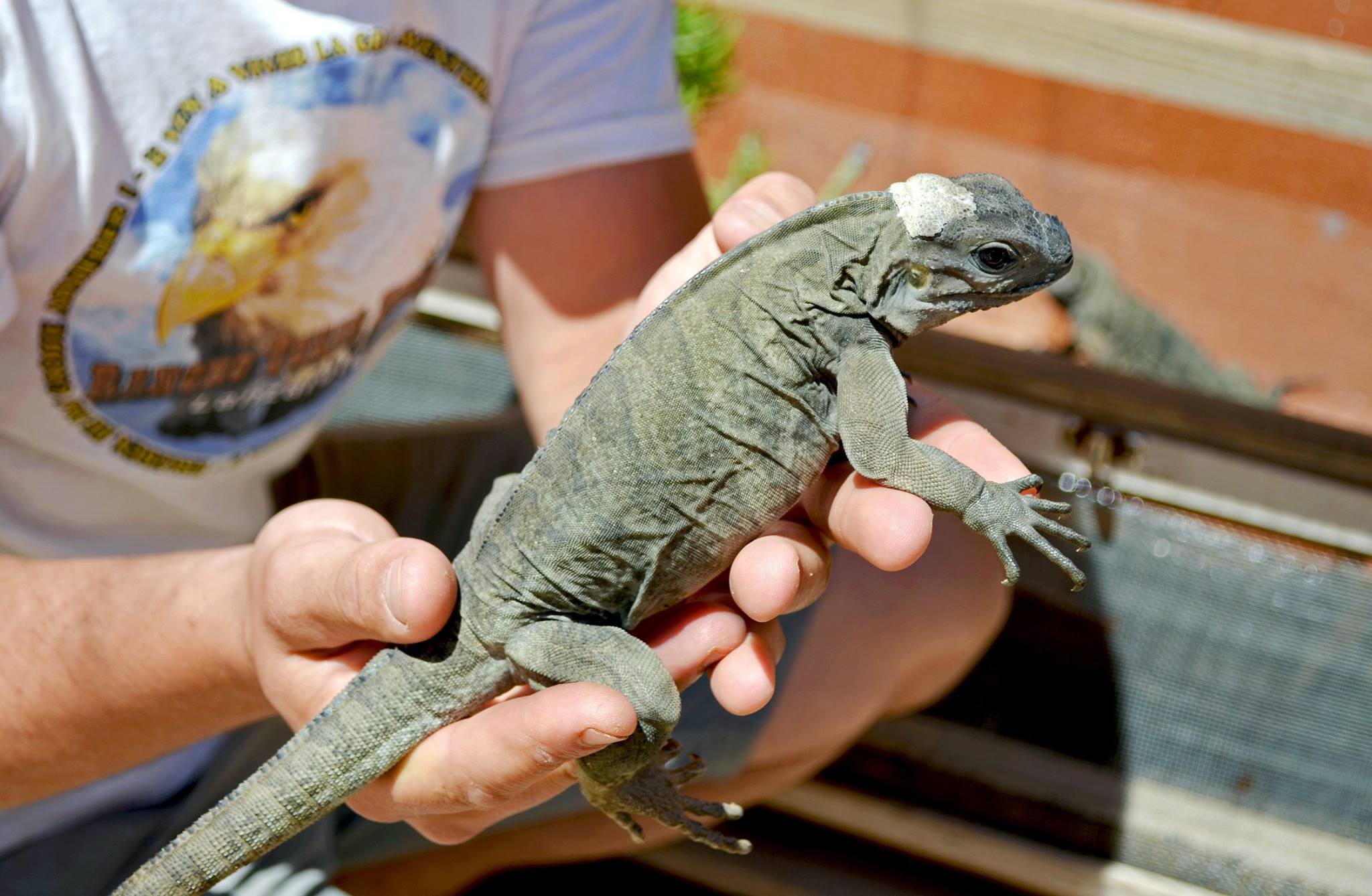Rhinoceros iguanas have reproduced naturally in our outdoor installations located in Lanzarote.
In Rancho Texas’s reptilarium a pair of Cyclura cornuta, also known as horned ground iguana or rhinoceros has reproduced in a completely natural way outside of its place of origin, Hispaniola, a Caribbean Island shared by the Dominican Republic and Haiti. This is an undocumented event in Europe.
Until now, out of three attempts, twelve offspring have hatched, all without them being artificially incubated. What’s important about this fact is that this species is at high risk of extinction, to the point that the programme CITES gives them the highest degree of protection. Their reproduction outside of the Caribbean has been achieved on very few occasions, with artificial stimuli for copulation to occur, and artificially incubating the fertilized eggs.
In Rancho Texas Lanzarote Park, their natural reproduction is possible due to the design and construction of the Reptilarium, inaugurated in June 2014. Guidelines set by a team of reptile experts were followed, these experts defined the environmental conditions that each species should have and added a specific diet especially designed for the reptiles.
The management of Rancho Texas Lanzarote Park have contacted the governmental and scientific authorities of the Dominican Republic to communicate to them the predisposition of the park to send to Hispaniola specimens of the Rhinoceros Iguana, with the purpose of introducing the young in to their natural habitat, therefore contributing to their conservation.



